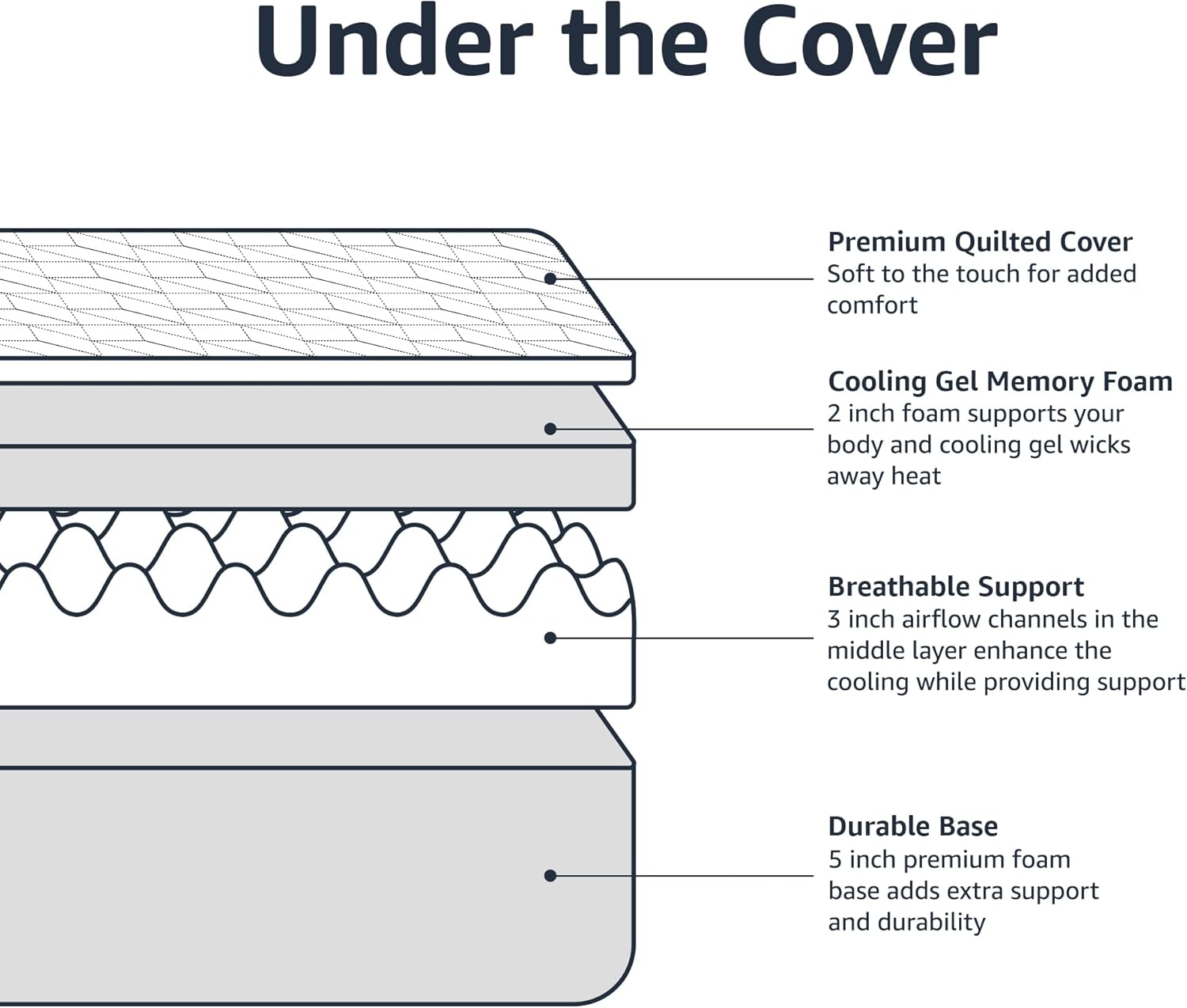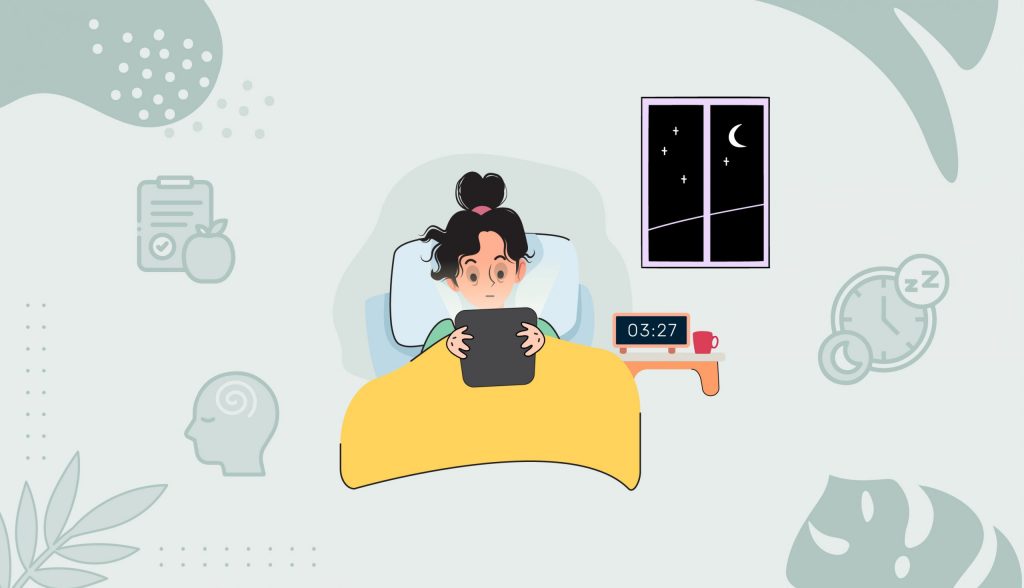“Insomniac eyes, telling the stories of dark night; foggy mind filled with slumber, afraid to see the bright light.”
Does it ever feel like you haven’t slept in ages, and every morning, you feel like sleeping in and never getting out of bed?
You might have been in a situation where you are tired and sleepy all day, and when it’s time for bed, you suddenly feel energetic and more active.
This is not because you are a night owl; the reason behind this is your unhealthy sleep schedule. You might sleep the whole day, and when it’s time to actually sleep, you binge-watch your favorite shows and stay awake almost the whole night, keeping your energy levels low during the day.
You do not have to be an early bird; a well-maintained sleep schedule and sleeping and waking up at the same time daily can be great health improvements.
Let’s discover more about the sleep schedule, its importance, why you need it, and how to improve it.
Why Your Sleep Schedule is Important?
Have you ever wondered why you feel sleepy and tired during the day, making you less productive, even if you woke up late in the morning?
Is it work pressure, relationship matters, or something else disturbing your mental and physical health?
Well, yes, in a long way, but all these things are responsible for disturbing your sleep schedule, which directly impacts your mind, body, and thinking ability.
You might not even know the reason behind your physical fatigue is your unmanaged sleep schedule, and keeping it in line becomes even more crucial.
Even after hours of sleep, you might wake up dizzy; this might be because your sleep schedule is out of sync with your natural circadian rhythm.
A good and well-managed sleep schedule helps your brain process emotions, clear out toxins, and even boost your immune system.
👉 Pro Tip
Start tracking your sleep patterns for a week using a sleep diary or a sleep-tracking app. You’ll uncover hidden habits that might be disrupting your natural sleep rhythm, making it easier to identify what adjustments you need for better rest.
If you miss out on this routine, it can lead to short-term concerns and long-term health problems, such as weakened cognitive functions and metabolic disturbance.
The Science Behind Your Body’s Internal Clock
Your body is programmed to follow a 24-hour cycle known as the circadian rhythm. This internal clock controls everything from your waking up to the most alert times during the day.
A group of neurons in the brain’s suprachiasmatic nucleus (SCN) controls your body’s patterns, such as sleep schedule, temperature, metabolism, and other behaviors. These neurons react to environmental signals like light and darkness.
When your rhythm is disturbed, whether it is due to work shifts, travel, or inconsistent sleep habits, your body will react, making it harder to fall asleep and stay asleep. The sleep hormone, called melatonin plays a critical role in this process.
👉 Fun Fact
Your circadian rhythm isn’t just set by light; even the timing of your meals can reset your internal clock, which is why eating at odd hours can sometimes disrupt your sleep patterns.
In the evening, when light diminishes, your brain increases melatonin production to help you settle down for the night.
Signs Your Sleep Schedule Needs a Reset
Sometimes, you may not know when your sleep schedule is out of balance. You might think it is normal to have difficulty falling asleep or waking up multiple times during the night, which is how your body functions. But these could be the signs that your internal clock is out of sync.
Here are some of the signs that you need to pay attention to and have a restful sleep:
- Constantly Hitting Snooze
If you are one of those people who constantly hit the snooze button in the morning, then understand that it could be a red flag that your body isn’t getting the rest it needs during its natural sleep window.
- Trouble Falling Asleep at Night
If you continuously have trouble falling asleep at night and find yourself staring at the ceiling for hours, then this is another clue. It certainly means that your sleep schedule is disrupted, and you must take the necessary steps to manage it properly.
- Feeling Groggy Even After Sleep
If you are getting full eight hours of sleep and still feeling tired, which has been occurring more frequently, it is a sign that your body’s natural sleep cycle has been disrupted, leaving you feeling exhausted and sleepy.
Did you know: that your body temperature also follows the circadian rhythm? It naturally drops by about 1 to 2 degrees Fahrenheit at night, signaling your brain that it’s time to sleep and helping you drift off more easily.
If you have any of the signs mentioned, then it is time to take the necessary steps to bring your sleep schedule back to its natural state.
Proven Strategies to Fix Your Sleep Schedule
If you have been struggling with unhealthy sleep schedules, you may find them frustrating and confusing. However, the good news is that with consistent efforts, you can completely regain your natural circadian rhythm.
Here are some of the proven strategies to help you get your sleep schedule back on track:
#1: Gradually Adjust Your Bedtime
You cannot change your sleep schedule in a day; it takes time and constant effort. You can try moving your bedtime earlier by 15-30 minutes each night. Your body requires time to adjust to new sleep patterns, making this gradual approach more sustainable.
According to some studies, sudden changes in sleep schedule can confuse the body, making it even more difficult to adjust. A consistent bedtime helps regulate your circadian rhythm, making it easier to fall asleep and wake up naturally. You can also include sleep supplements to maintain a healthy sleep cycle.
#2: Limit Blue Light Exposure Before Bed
You might have heard that you should not use your phone before bed or it can disturb your sleep, but did you know it’s the blue light emitted by a device that suppresses your melatonin production? You must aim to power down the electronic devices at least an hour before bed.
Research done by Havard suggests that prolonged exposure to blue light can delay sleep by up to two hours. If you can’t avoid screens, using blue light filters or glasses may help reduce its effects.
#3: Create a Relaxing Pre-Sleep Routine
It is essential to create a bedtime routine so that your brain knows it’s time to wind down. You can incorporate activities such as meditating, reading a book, or taking a warm bath that can help your body fall asleep easily.
Studies have found that relaxation techniques can lower cortisol levels, making it easier to fall asleep. Sometimes, simple things like dimming the lights can trigger your brain’s natural production of melatonin, which helps you sleep.
Another great way to make your sleep comfortable and healthy is to use a mattress that provides restful sleep, like a memory foam mattress.
#4: Be Mindful of Your Caffeine Intake
You must be careful about what you are having before bed. If you like caffeine in the evening or a few hours before bed, you must know that it blocks adenosine, a chemical in your brain that helps promote sleep.
A study from the Journal of Clinical Sleep Medicine found that consuming caffeine six hours before bedtime can reduce total sleep time by more than one hour. Limiting caffeine consumption after lunch can drastically improve your sleep quality.
#5: Stick to a Consistent Wake-Up Time
If you wake up at the same time every day, even on the weekends, you will train your body to follow its natural rhythm. Consistency is the key to resetting your sleep schedule.
Research shows that people who maintain regular wake-up times report better sleep quality and overall mood compared to those with fluctuating sleep patterns.
👉 Mindful Question
What is one small habit you could change in your bedtime routine today to support a healthier sleep schedule, and how might that positively impact your energy levels tomorrow?
By following these effective techniques properly, you can slowly change your sleep schedule, which benefits your mind and body.
Conclusion
It is not possible to fix your sleep schedule overnight. It is a time-consuming process that requires patience and small changes at a time. Gradually, you will be able to feel the benefits of a well-rested body and mind.
It is essential to prioritize your internal clock and incorporate effective strategies like limiting blue light, having a consistent routine, and limiting caffeine intake; this will help you prepare for a night of better sleep and improve your overall health.
Good sleep is a foundation for a healthy mind and body, so understanding your body’s rhythm is essential to regaining balance.
You must understand that improving your sleep is not just about sleeping for long hours but how well you align with your natural circadian cycle.
“Fresh mornings bloom, from a healthy night; clarity fills the mind, like a sunlit daylight.”
Challenge: The 7-Day Sleep Reset
- Set Your Bedtime: Choose a fixed bedtime that allows for at least 7-8 hours of sleep.
- Consistent Wake-Up Time: Set a wake-up time and stick to it, even on weekends.
- Track Your Progress: Use a journal or app to note how you feel each morning—energy levels, mood, and focus.
- Limit Screen Time: Turn off electronic devices at least an hour before bed each night.
- Reflect: At the end of 7 days, review your notes. Did a consistent sleep schedule improve your overall well-being?






















